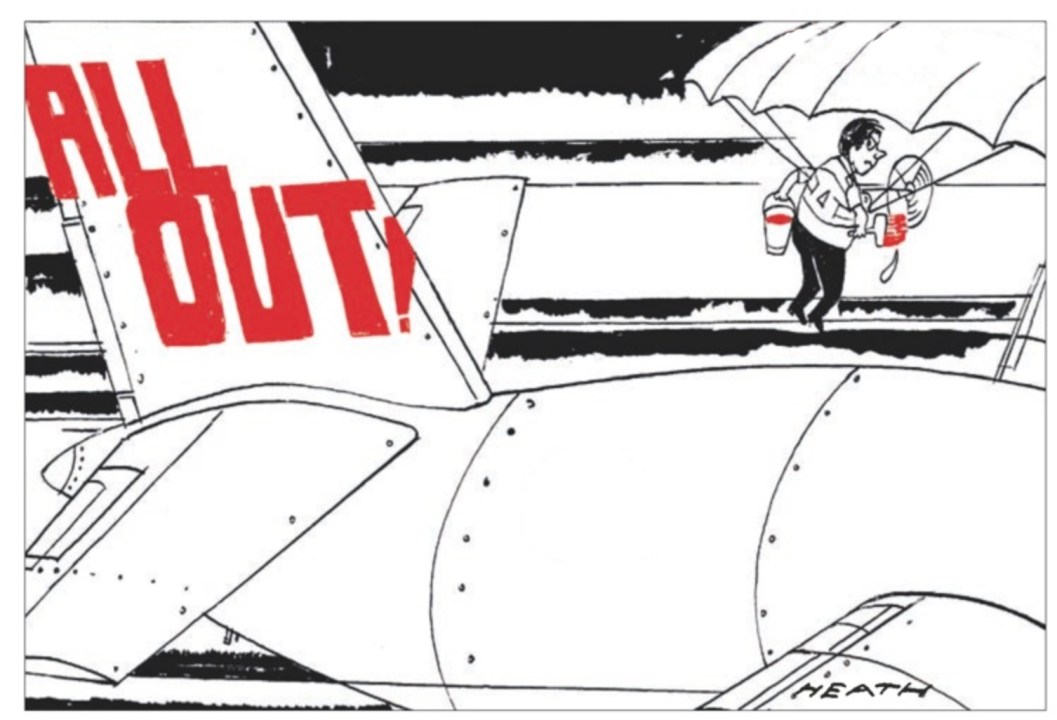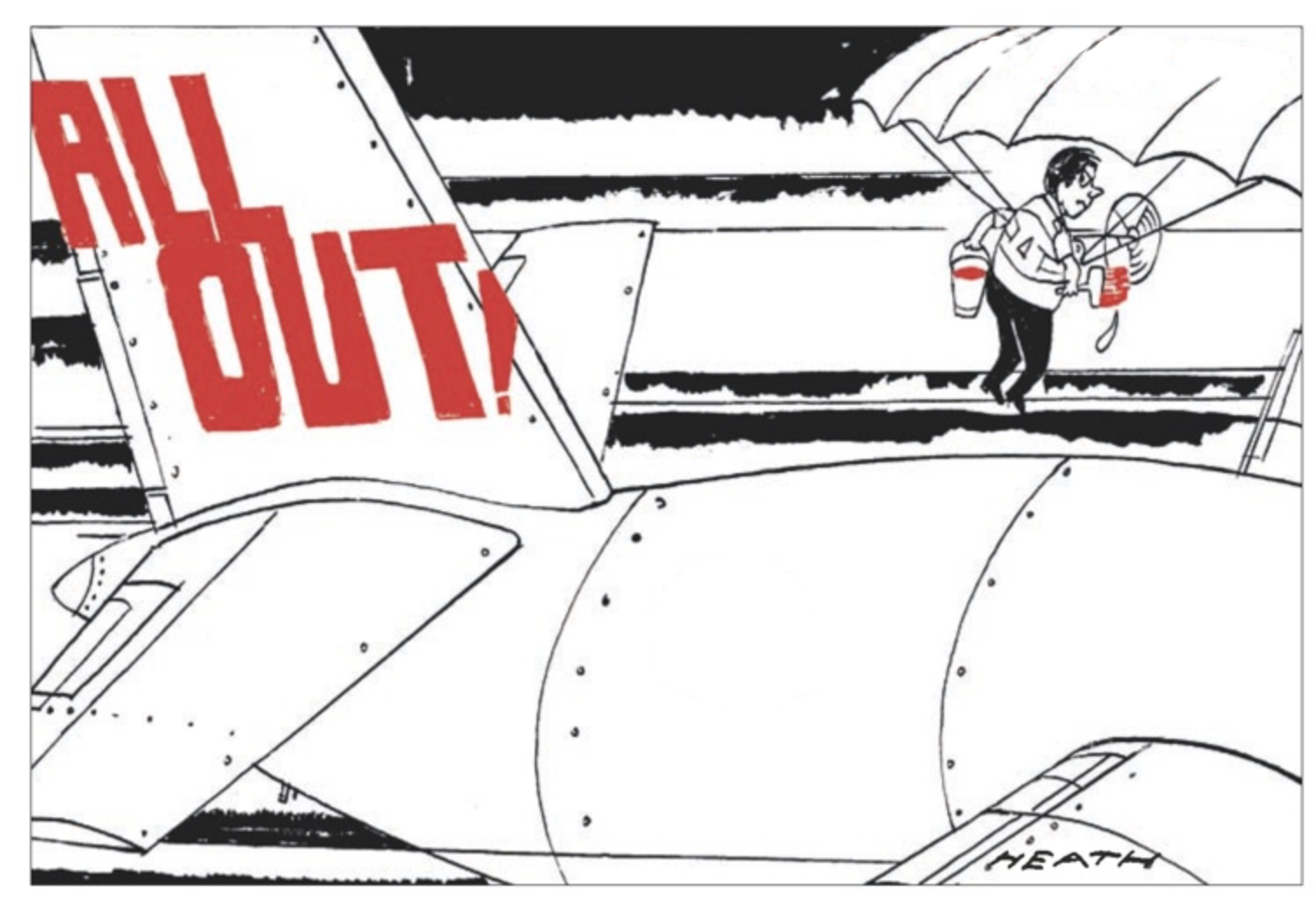‘How do you cope with this?’ The poor woman is looking up at me with the big Bambi eyes I’ve seen grown men adopt when extreme turbulence hits. I have to say something comforting; it’s part of my job description as cabin crew. They even tell us what to say on the cabin crew training course. Get down to eye level with the passenger, adopt a comforting tone, agree with their distress, and reassure them everything will be fine. I hate the kneeling down bit; it feels a little insincere and overly intimate. Plus, I’m ashamed to say, you can probably hear my knees cracking from the cockpit. Unfortunately, I’ve still got a rather large chunk of my mortgage to pay, so I duly launch into ‘the routine’.
You probably won’t know what hit you as you’re pulverised into a million pieces on impact
‘Don’t worry (insert name retrieved from pax list). Everything is completely fine (no it isn’t). I’ve experienced this exact same thing a hundred times before (this bit is true) and I can assure you everything is completely normal (it’s not). We’ve just heard from the cockpit and they have assured us it won’t last for much longer (my creative writing experience is handy for generating this kind of comforting fiction).’
The true answer to the question, ‘how do you deal with it?’ is a lot more complicated, and I can tell you that I won’t be divulging what really calms me as long as I need a day job to survive. Of course, I’m only human, and if things get hairy, I do sometimes wonder, is this it? Is this how it’s going to end? Yes, I know it’s dramatic, but let’s be honest; your chances of actually surviving a plane crash aren’t great. Whereas you might hear someone say, I had a near miss in the car one morning and got lucky, no one has a near miss in a plane crash. It’s generally lights out unless you’re one of those highly unusual cases where someone survives.
I always remember the story of the Juliane Koepcke, the German girl who literally fell from the sky over Peru in 1971. She was the sole survivor of the crash, landing in the middle of the Peruvian rainforest; she had to walk to civilisation by following a river stream. She wrote a book called, aptly, When I Fell from the Sky, which should be required reading for anyone with an interest in aviation. One of the many fascinating snippets from the book was her mother’s stoic last words to Juliane before she plummeted to her death: ‘Now it’s all over.’
And that, in a few words, is how I comfort myself when the extreme turbulence hits and the plane starts rocking like the rollercoaster at Alton Towers. Of all the ways to die, this one ain’t the worst. It will be over before you know it, and you probably won’t know what hit you as you’re pulverised into a million pieces on impact.
Before you recoil in revulsion at my macabre view on this hypothetical disaster, may I remind you, we are all going to die. We shall all be meeting our maker at some stage, in some manner, eventually. Maybe it’s a peculiarly Irish thing to have this nonchalant view on death. I always find the British sensibility oddly squeamish towards what is the one certainty in life. That might be one benefit of the Irish tradition of wakes, where you spend an inordinate amount of time around dead bodies and open caskets at funerals. My English husband found it astonishing that so many people were drinking alcohol around my father’s wake. ‘It’s so odd, they just treat it like it’s a wedding or something, not a funeral.’
Back to the woman whose hand is quivering so much that the ice is almost jumping out of her G&T, ‘How do you cope with this?’ I refrain from telling her the benefits of a quick death and how painless a pulverising exit would be. While there’s a cost-of-living crisis in full swing and I’m not on a fixed-rate mortgage, I adopt my most comforting tone as I kneel to eye level by her seat. ‘Don’t worry dear, everything will be just fine.’








Comments